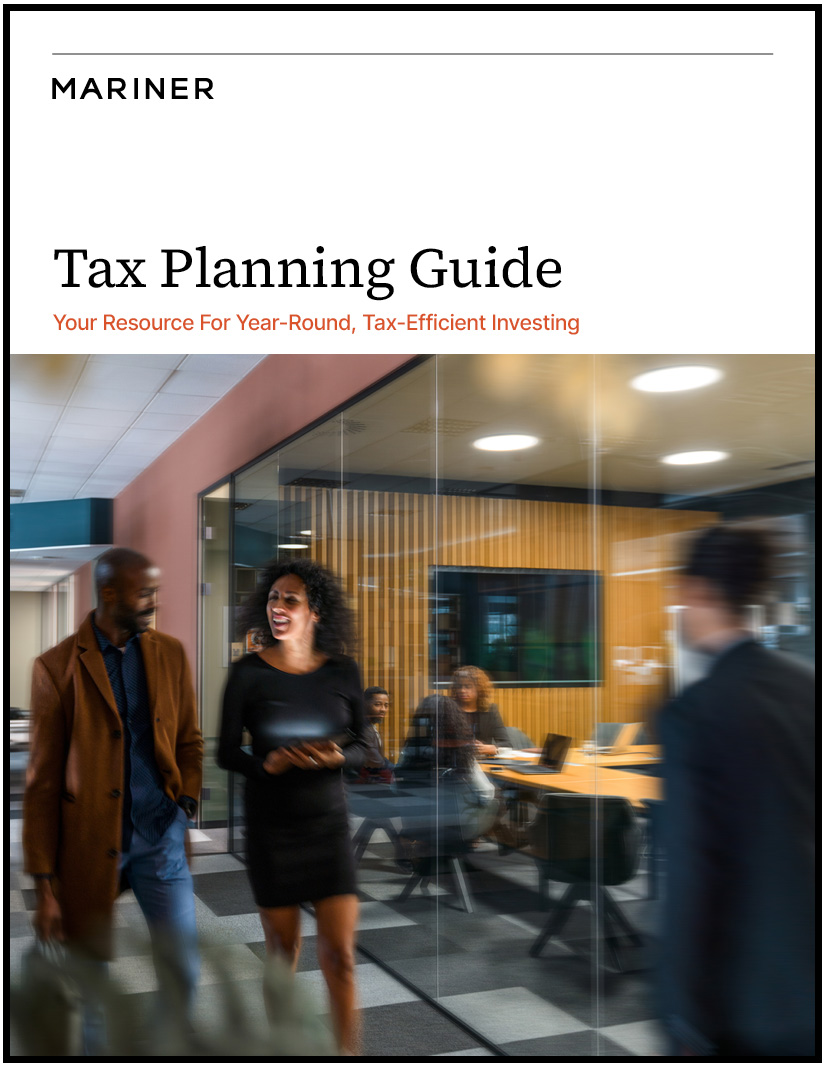5 Common Tax Questions

Q: Does it make sense for me to itemize deductions on my taxes?
A: It depends. If your itemized deductions are over the 2023 standard deduction of $27,700 for couples, $20,800 for head of household or $13,850 for single filers, then it may make sense to itemize.1
Keep in mind, though, that some of the items you may have deducted prior to 2017 currently have monetary limits or are no longer able to be deducted. For example, state and local income taxes (SALT) are limited to $10,000 for most tax filers, and you can claim this deduction only if you itemize your tax return. The limit applies to tax years 2018 to 2025.2
Q: How much mortgage interest can I deduct on my taxes?
A: Individuals can deduct home mortgage interest on the first $750,000. For mortgage debt that occurred prior to Dec. 16, 2017, you can deduct up to $1 million.3
Q: Can I deduct interest from my home equity line of credit?
A: It depends. You can’t deduct interest on your home equity loan unless it is used to substantially improve a qualified residence or acquire a second home. So, if you use your HELOC to purchase a car, as an example, that interest deduction will no longer qualify.
Q: What are the tax advantages of using a 529 plan to save for my child’s education?
A: Contributions to 529 plans are considered gifts for tax purposes. In 2023, gifts totaling up to $17,000 per individual4 will qualify for the annual gift tax exclusion. You can maximize these gifts. For example, in 2023, if you and your spouse have three children (or grandchildren), together you can give a combined $102,000 without paying gift taxes. Essentially, each child would receive $17,000 in gifts from you and $17,000 in gifts from your spouse.
Another strategy is to “superfund” a 529 plan. This allows you to contribute as much as $85,000 upfront to a 529 plan in 2023 if you treat the contribution as if it were spread over a five-year period. The five-year election must be reported for each of the five years. And, as long as you don’t contribute again over the next five years, there are no tax consequences.
You can also receive state income tax credits or deductions, and the amount varies by state. Over 30 states, including the District of Columbia, currently offer a deduction or tax credit. In most cases, the taxpayer must contribute to their home state’s 529 plan to qualify for a state income tax benefit.
Q: What are the tax advantages of giving gifts and transferring wealth?
A: In 2023, you can give a gift of up to $17,000 without being taxed, and your lifetime estate tax exclusion is $12.92 million.5 Consider consulting with an estate planning lawyer if you’re using annual gifts to transfer your estate before your death.
Tax Guide: Your Resource for Year-round Tax-Efficient Investing Year-round planning with an advisor could help improve your overall wealth plan. Find out more by downloading our tax guide.
Sources:
1“IRS Provides Tax Inflation Adjustments for Tax Year 2022”
2“IRS Explains Treatment of State & Local Tax Refunds.”
3“Frequently Asked Questions: Mortgage Interest”
4“Frequently Asked Questions on Gift Taxes”
5“What’s New-Estate and Gift Tax”
Investors should consider the investment objectives, risks, charges, and expenses associated with 529 plans before investing. More information about specific 529 plans is available in each issuer’s official statement, which should be read carefully before investing.
The availability of tax or other benefits may be conditioned on meeting certain requirements, such as residency, purpose for or timing of distributions, or other factors as applicable.
This article is provided for informational and educational purposes only, and the views expressed do not take into account any individual personal financial, legal, or tax considerations. As such, the information contained herein is not intended to be personal legal, investment, tax advice, or a solicitation to or recommendation to engage in any strategy mentioned. Any opinions expressed are based on information and sources of information deemed to be reliable, but Mariner Wealth Advisors does not warrant the accuracy of the information. Consult your financial professional before making any investment decision.
Mariner is the marketing name for the financial services businesses of Mariner Wealth Advisors, LLC and its subsidiaries. Investment advisory services are provided through the brands Mariner Wealth, Mariner Independent, Mariner Institutional, Mariner Ultra, and Mariner Workplace, each of which is a business name of the registered investment advisory entities of Mariner. For additional information about each of the registered investment advisory entities of Mariner, including fees and services, please contact Mariner or refer to each entity’s Form ADV Part 2A, which is available on the Investment Adviser Public Disclosure website. Registration of an investment adviser does not imply a certain level of skill or training.

